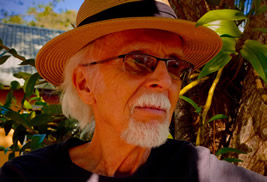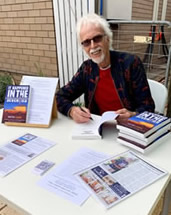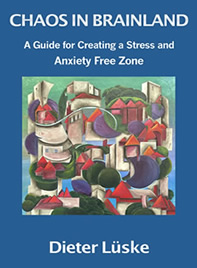Emu Park to Mackay - Seventies Book
It Happened in the Seventies - Memoir
Book by Dieter Luske - Writer - Author
Author of fiction & non-fiction - suspense - crime & mind matters
Book snippet from:
It Happened in the Seventies - Sea Change Story
An intriguing story of risk-taking, self-discovery and profound change.
Chasing more adventures - No Emus at Emu Park - Book Snippet
It Happened in the Seventies - Book by Dieter Luske
Sightseeing and shopping occupied the morning, filling our pantry with tins of food bought at a reasonably priced supermarket, much cheaper than in Sapphire, not to mention Rubyvale. We left with several large brown paper bags filled with goodies. Next on our list was to buy a book about faceting, but we couldn’t find anything. Instead, we purchased ‘Ballet in Australia’, only $2, a bargain.
Shopping done, we left Rockhampton and drove to Emu Park, a small town where we fully expected to see emus running around. But no emus in sight, not even at the caravan park.
Unpacking our goodies to prepare for dinner, we had a heart-stopping moment, one of our bags was missing. Giselle remembered putting it aside to make space for another. The bag was filled with tins of food, and its loss would be costly. We decided to try our luck and drive back to Rocky the following day.
We would have to be fast; the shops would close at 1 pm. Our nerves were on edge as we re-entered the supermarket, but lucky again. They had stored our bag, being sure we would collect it. They were right, and we were happy.
Back to Emu Park, there was something we wanted to see. Bob and Joan had told us about a sailing-boat landmark with pipes as masts, which made musical sounds when the wind blew. We found it, the wind was blowing, and the music was playing. The monument, known as the Singing Ship, was placed at the highest point on the coast, where the wind blew constantly. We took a few pictures, and classified them as tourist snapshots. Most of the time, we took pictures with our Pentax; it was so much easier than carrying that large-format Bronica camera around. We planned to sell or exchange the Bronica in Melbourne for a Nikon.
We left Emu Park for Yeppoon, driving leisurely and looking at the scenery. We were lucky to find a space to camp right on the beach; it was only 3pm, the perfect time to enjoy a cup of tea and read those German magazines we’d been given. We read them from cover to cover, as they were the first German magazines we’d seen since leaving Sydney. In the mood for even more reading, I started a book by Patrick White titled Voss. It was about a German explorer who had disappeared in the Australian Outback; obviously, I hoped that, in our case, life would not imitate art! It wasn’t an easy read; I needed my dictionary to make progress.
We were not in our usual upbeat travelling mood, leaving early next morning for Mackay. Stories we heard made us apprehensive. This was a long stretch of road, with bush on both sides and nothing much else in sight. It was this section of road that had prompted people to urge us to carry a gun. And now here we were, unarmed. If no one had told us about people being murdered along here, we would have had a relaxed trip. We estimated the distance at about 400 km and were anxious to make it to Mackay before dark. We made only one stop, in Marlborough, the last town where you could get petrol. There was a fair bit of traffic around; not an ideal situation to murder us, too many witnesses. We relaxed and even stopped for a cup of tea and a sandwich.
About 100km before Mackay, we had a puncture. Climbing up to the roof rack to get down the spare, I noticed a car way behind us had pulled over to the roadside. Why did they stop? While I got on with changing the tyre, Giselle kept an eye on that waiting car.
“Someone's getting out,” she alerted me. I got up and looked; sure enough, two guys were walking around. Opening the rear of the car, I got out our fishing rod. From afar, it would look just like a gun.
I handed it to Giselle. "Just carry it casually, as if it was a gun," I said and went back to changing the tyre.
"They're getting back into the car," she called out.
I had finished, "Let's go, all done", I said.
When we hit the road again, the car was still by the roadside, a diminishing object in the rear-view mirror. I kept checking, but that was the last we saw of them. Maybe they never meant to harm us at all.
"They probably heard the same gruesome stories we heard", I said.
Too much excitement for us; we needed a drink, just a sip of brandy for medicinal reasons.
....... to continue >> buy at Amazon
.. return to the Snippet Menu
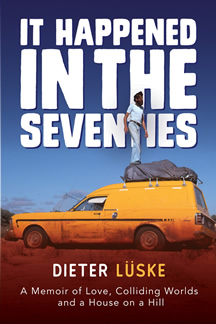 It Happened in the Seventies
It Happened in the Seventies
A Memoir of Love, Colliding Worlds and a House on a Hill
An intriguing story of personal risk-taking, self-discovery and profound change.
...available as e-book - paperback & hard cover
Dieter Luske -> Author Profile
Published by LU-Books
An inspiring read of a life-changing escapade Down Under
Phil Brown – Arts Editor
Emu Park to Mackay - Singing Ship - The Seventies - Photos:
NOTE: Images are NOT included in the book...
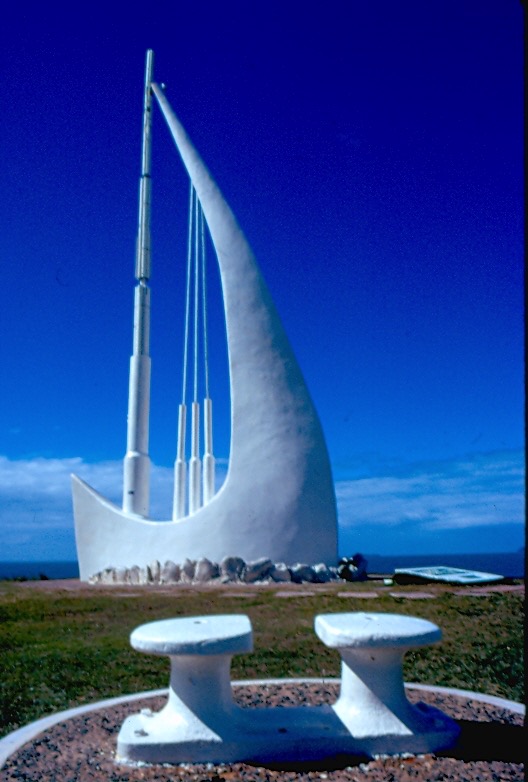
Emu Park - Singing Ship
More high quality photos - "It happened in the seventies"
KEEP IN TOUCH!
Join Dieter's Newsletter
Dieter Luske - Writer
Book Description
It Happened in the
Seventies
From the author of ‘Do You Believe in You’ comes an intriguing story of personal risk-taking, self-discovery and profound change.
At only twenty-one, Dieter started his own thriving business and lived the good life in Hamburg, Germany. By the age of twenty-four, he knew something was missing: there must be more to life than earning a living, and he wanted to find it in Australia as a quest for all things vital, health, love, creativity, meaning, purpose and independence.
How does life continue if one decides to leave all one has achieved?
Dieter met Giselle on Christmas Day 1973. They didn’t want a relationship but the universe had other ideas! Arriving in Sydney in 1974, they lived, worked and explored Australia in their yellow panel van for two and a half years, discovering themselves and their unpredictable future.
Driving from one adventure to another, they faced unexpected dangers and found paradise in unforeseen places.
Devastating news arrived from Hamburg – their dreams and reality collided.
Could they still achieve their goals and live their dream lifestyle?
--- --- ---
An inspiring read of a life-changing escapade Down Under
Phil Brown - Arts Editor
The Courier-Mail
The Bookshelf

Certified Human
Sci-Fi Crime Novel
Anxiety Free Zone
Overcome
